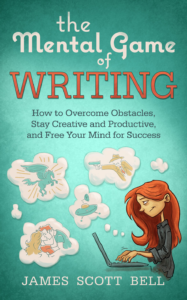Let’s go around our virtual room and hear what everyone’s working on these days. Tell us the title of your current project and a lit bit about the story. Time to toot your own horn!
Monthly Archives: February 2018
A Lesson in Deep POV — First Page Critique
By SUE COLETTA
Another brave writer submitted their first page for critique. I’ll see ya on the flipside.
Murder Audit
Jim Dunn, Controller of Prairie Pipeline Co., rubbed his eyes as he glanced up at the clock on the wall of his office. It was almost 7:00 pm and while this would be an early night for him, he was ready to call it quits. He had been working late hours getting ready for PPC’s annual financial statement audit and he wanted to make sure everything was in order for tomorrow’s inventory count. Although he had met with audit manager, Cynthia Webber, several weeks ago, he felt it was important he was at the office bright and early on inventory day.
He reached into his desk drawer and pulled out a half-full bottle of Crown Royal. He unscrewed the cap and poured a good jigger into his stale, cold coffee. After replacing the bottle in his desk drawer, he swirled his coffee cup and downed the concoction in three big gulps. As he planted his cup back on his desk in its usual spot he thought he heard voices. Knowing he was alone in the office, he went to his window and noticed some protesters had gathered outside the front entrance. Feeling brave from his last four mugs of “coffee Royal”, he opened the window and shouted at the protesters.
“Get outta here you granola loving hippies! This town wouldn’t be what it is today without this company. I bet half of you work for our subsidiaries and don’t even know it. Go find something better to do!” As Jim closed the window, he heard something thunk against the building. He looked at the angry mob of about 20 to see that they were throwing rocks at the building. He opened his window and shouted at the crowd.
“I’m calling the police!”
“Oooh, the police. We’re scared now!” one of the protesters sarcastically snapped back. By this point Jim was ready to take matters into his own hands. He was sick and tired of environmental protest groups showing up at the office and disturbing not only the normal course of business but also the time he put in after hours. It was almost as if they were stalking him. He just couldn’t understand why they would choose 7:00 pm as a time to protest. Then he remembered there was a benefit dinner happening at the University to raise funds to relocate the hundreds of thousands of birds that would be without homes if the new pipeline went ahead as planned.

Overall, I liked this piece. I can see the potential for a fast-paced story, rife with conflict. It’s because of the writer’s potential that I’ve narrowed in on POV.
What we find with this first page is a distance narrator. The following words in bold are all telling words and phrases. Remember, if we wouldn’t think it, our POV character shouldn’t either. Some writers have a difficult time with deep POV, which we’ve discussed before on TKZ. It’s one element of craft that we learn at our pace. One day it’ll just click. My hope is, this is that day for Anon.
When we tell the reader what’s happening rather than showing the events as they unfold, we’re robbing them of a vicarious experience and thus, they won’t be as invested in the story. Force them feel what our POV character is up against. If we don’t, the reader stays detached and it’s easy for them to put down the book.
Taken from the first paragraph, let’s reword into showing.
Telling:
He had been working late hours getting ready for PPC’s annual financial statement audit and he wanted to make sure everything was in order for tomorrow’s inventory count.
Showing:
In preparation for PPC’s annual financial statement audit, he’d worked ungodly hours. Everything must be perfect for tomorrow. If the inventory count was off even a fraction, he could lose his job.
See the difference? We’re now inside the MC’s head.
Let’s look at the same paragraph, last sentence.
Telling:
Although he had met with audit manager, Cynthia Webber, several weeks ago, he felt it was important he was at the office bright and early on inventory day.
Showing:
Several weeks ago, he’d met with his audit manager. To say it didn’t go well was an understatement. For the last several days, he’d even beaten the crows to work, and their day started at dawn. The pesky buggers never missed an opportunity to raid the dumpster. What a mess they left, too.
Note the hints of environment as well as personality? Using deep POV allows the reader to get to know our MC a little at a time.
I’m including the next line for a different reason.
He looked at the angry mob of about 20 to see that they were throwing rocks at the building.
The word “looked” in this context isn’t wrong, per se, but it is generic. Meaning, we have no idea “how” the MC is looking at the crowd below. By using a weak verb we miss an opportunity to show the MC’s reaction. Try “gaped,” which shows shock, “glared,” which shows aggravation or anger, “scowled,” which shows resentment, disgust, anger. Choose the word that best describes “how” the MC is staring at the crowd. Incidentally, don’t only concentrate on the eyes. A curled lip shows just as much disgust and paints a better picture.
2nd Paragraph
As he planted his cup back on his desk in its usual spot he thought he heard voices. Knowing he was alone in the office, he went to his window and noticed some protesters had gathered outside the front entrance. Feeling brave from his last four mugs of “coffee Royal”, he opened the window and shouted at the protesters.
Showing:
When he set the cup on the monogrammed coaster, one of the few things the ex-ball-and-chain hadn’t stolen, voices resonated below. Better not be those damn protesters again. For liquid courage, he poured another coffee royal, tossed his head back, and sucked the mug dry. (side note: I loved Jim’s coffee royal habit; my 90 y.o. Italian grandfather-in-law tipped quite a few in his day. 🙂 )
Jim shoved open the window. (Example of using a body cue instead of dialogue tag) “Get outta here, you granola-lovin’ hippies!” (Great dialogue. Good job, Anon!)
However, the following dialogue doesn’t work.
“This town wouldn’t be what it is today without this company. I bet half of you work for our subsidiaries and don’t even know it. Go find something better to do!”
The first line in the above passage is too on-the-nose. The second could work if reworded to sound more natural. Although, I’d rather see Anon use the dialogue to show us more of Jim’s personality. It’s precious real estate and shouldn’t be wasted by sneaking in backstory.
As Jim closed the window, he heard something thunk against the building. He looked at the angry mob of about 20 to see that they were throwing rocks at the building. He opened his window and shouted at the crowd.
“I’m calling the police!”
Heard and see are telling words. The dialogue should come after the body cue, not on a separate line. Also, why have Jim close and reopen the window? Keep it open. If you need Jim away from the window, let him refill his coffee royal. Which also gives us the opportunity to show the reader how pissed off or frightened he is.
Rewritten:
Jim swiped the Crown Royal off his desk, and a pummel of tings blasted against the side of the building. He chanced a peek out the window. About twenty of the angry mob whipped rocks at the bricks, some even hit the new Prairie Pipeline Company sign. As CEO, he couldn’t let this behavior continue. Hidden by the window frame, his body flattened against the wall, his voice betrayed his confident front when it raised three octaves. “I’m calling the cops!”
Notice how I slipped in the name of the company and his job title? Here isn’t as intrusive as the first line and we won’t risk overloading our reader with information before they get a chance to know Jim.
Last paragraph:
“Oooh, the police. We’re scared now!” one of the protesters sarcastically snapped back. By this point Jim was ready to take matters into his own hands. He was sick and tired of environmental protest groups showing up at the office and disturbing not only the normal course of business but also the time he put in after hours. It was almost as if they were stalking him. He just couldn’t understand why they would choose 7:00 pm as a time to protest. Then he remembered there was a benefit dinner happening at the University to raise funds to relocate the hundreds of thousands of birds that would be without homes if the new pipeline went ahead as planned.
First, cue the reader to who’s speaking right away. “Ooh, the police,” yelled the protest leader. Barry something-or-other. This wasn’t the first time he’d had run-ins with that loud-mouthed-loser. “We’re scared now!”
The next line is all telling and does nothing to further the plot — delete.
Rewrite the rest of the paragraph to hint at the story to come.
So damn tired of environmental groups disrupting the normal work flow, never mind the time spent before and after hours, something had to give. It was almost as if they sensed when he pulled into the parking lot. Had they planted cameras? Stalked him? Oh, maybe they attended the fundraiser tonight. Bunch of tree-huggers trying to find a way to relocate birds once PPC laid the new pipeline. If only these earthy-crunchy types could disappear. Vanished. Scraped off the planet like gum on a sneaker’s sole. But how?
He smirked. Murder might be an option.
###
Overall, there’s a lot to like about this first page. If Anon deepens the POV, s/he could have an intriguing story.
Jordan passed me the music challenge gauntlet. So, I’m including the inspiration behind Paradox, my killer in SCATHED, Grafton County Series, (release date TBA). #TKZMusicChallenge
Over to you, TKZers. What tips would you give to strengthen this first page?
Avoiding Burnout With Strategic Breaks
by James Scott Bell
@jamesscottbell
 As is my usual practice, I spent a few days this past December going over my writing goals and practices, and making plans for the new year. And once again I found myself appreciating the discipline of the writing break.
As is my usual practice, I spent a few days this past December going over my writing goals and practices, and making plans for the new year. And once again I found myself appreciating the discipline of the writing break.
Its value hit me anew as I read a Business Musings post by Kristine Kathryn Rusch titled “Burnout and the Indie Writer.” She writes:
Burnout.
I’ve been hearing that word a lot in the writer community. It took a while for the word to penetrate. I’ve had my own things to deal with this year, and I really haven’t been looking outward as much as I usually do.
But a friend who traveled to a number of conventions this year mentioned that avoiding burnout was a topic at every single one of those conventions.
Kris goes on to recommend some self-care items such as adequate sleep, being with loved ones, eating right and so on. All important suggestions.
The pressure comes when the writer who wants to make good dough at this thing (even a living) realizes that the only “formula” (and lottery-type luck is not a formula) is to keep producing quality work at a steady pace.
Notice that word, steady. I believe this is the key to avoiding writer burnout. Every writer has a sweet spot where production meets life and stays on its side of the fence. We call this a quota.
Now, those of you who’ve read my craft pieces over the years know I’m a quota guy. It’s the single most important discipline in my own writing life. I started down this road in 1988, and early on I remember reading about how important a quota was. The very first writing craft book I ever purchased was Lawrence Block’s Writing the Novel. In it, he has a section on quotas, and notes that most pro writers keep track of the words they produce, not the time they spend at the desk.
That got to me, and I have stuck to a quota ever since. It’s almost always been 1,000 words a day, six days a week, with a day of rest on Sunday.
Though I have cheated on occasion when a deadline was breathing down my neck, this “writing Sabbath” has been crucial for me. It gives my brain much-needed rest. I find I’m always energized to start up again on Monday. That is perhaps the main reason I’ve never truly felt burned out. Tired, yes. But the big fizzle, no.
It’s also important, I’ve found, to take daily breaks. I’m usually not more than an hour at a time at the keyboard. I’ll then take a five- or ten-minute stretch or stroll. In the afternoon I take a power nap—15 to 20 minutes.
One other thing I have to do is keep myself from “over-writing” when the going is good. Block addresses this in his book:
One thing you might try to avoid, in this connection, is attempting to extend your productivity. This sort of overload principle works fine in weightlifting, where one’s ability to manage more weight increases as one lifts more weight, but it doesn’t work that way in writing. It’s tempting to try to do a little more each day than we did the day before, and I still find myself intermittently struggling to resist this particular temptation, even after lo these many years. If I can do five pages today, why can’t I do six tomorrow? And seven the day after? For that matter, if I really catch fire and do seven today, that proves I can definitely do a minimum of seven tomorrow. Doesn’t it?
No, it doesn’t.
What does happen, in point of fact, is that this sort of overload generally leads to exhaustion … Find your right pace, make sure it’s one that’s not going to be a strain, and then stick with it.
And sometimes writing breaks are thrust upon us.
Like getting sick. I thank the Good Lord I’m pretty healthy most of the time, but last year I got taken out by a bout of pneumonia. It actually set me back a couple of weeks. I managed some writing, but mostly I rested and took my antibiotics and sniped at my wife (this saint continued to take care of me.)
I’ve also found that when I go to a convention, like Bouchercon or ThrillerFest, it’s almost impossible for me to get in any writing time. There’s too much going on, like Gilstrap holding court in the bar with his Beefeater martini. No one wants to miss that. So I give myself permish to take several days off when I attend. (I also find I can write on a plane going to a location, but not coming home. I think that has to do with my being a morning person, as I described a couple of weeks ago.
Yes, there is one exception to all this steadiness, and that’s NaNoWriMo. We need not revisit the debate over this singular month of writing madness (you can search for NaNoWriMo in our archives for that), but it’s there for you to consider.
What I’m saying is simply this: be as intentional about taking a break from writing as you are about producing the words. Be strategic, be smart. I’ve said this many times before, but here it is again: figure out how many words you can easily write in a daily session. Now up that by 10%. So if it’s 250 words, you aim for 275. 1000 = 1100. Try to do that six days a week.
But do not beat yourself up if circumstances conspire against you. Treat every new week afresh.
Do this day after week after year—with regular breaks—and you will not only avoid the B-word, you’ll see an amazing output of material. Which is the difference between someone who wants to write and a writer.
So how have you been feeling about your writing life of late? Pressure? Not enough time? Are you beating yourself up a lot about production (or lack thereof)? Maybe you need to think about strategic break-taking.
___
Because I believe so strongly in the mental game of writing, I’m making my ebook on the subject 99¢ this week.
Reader Friday: Which Books Would You Suggest?
Do You See Your Character the Way Readers Do? First Page Critique: Rabya
For your reading pleasure, we have an anonymous submission of the first 400 words to a story titled – Rabya. I give my feedback below, but I also wanted to share this tidbit that the author shared on the inspiration for the story. In my own writing, headlines often inspire my novels and I love blending my research into fiction to add gravitas and authenticity.
FROM THE ANONYMOUS AUTHOR – Based on a true situation, RABYA is the story of how an American software engineer lands on the Terror Watch List because his live-in girlfriend, Rayba Salik, is Turkish. Does she have a secret?
***
Two minutes before take-off, Justin Karns twists side-to-side, trying to carve out room for his shoulders. The tall guy to his left has already commandeered the armrest. His manspread invades Justin’s space. The thought of rubbing knees with him across the Atlantic Ocean is creepy. If Justin doesn’t resolve this problem soon, he’ll be a mess for his big interview.
A few rows ahead, three seats sit empty. Though it’s verboten to move during takeoff, the seat should still be available in five minutes if everyone follows the rules. Yet, when the plane levels off—with the seat belt sign still lit—a man darts into the empty row. Justin pushes his call button.
“May I help you?” The flight attendant asks.
“Yes, please.” He glances at her name tag. “Kirsten, this row is way too crowded for three tall men. I’m six-foot and cramped. Imagine how these guys feel.” He flips his thumb to the left. “There was an empty row ahead, but someone just took the middle seat.”
She glances over her shoulder and then back without a word.
“Would you mind asking that guy to take the window seat so we could both be comfortable up there. Then my friend here,” Wilt the Stilt, “will have a place to stow his legs.”
“I’m sorry,” Kirsten says. “That is not possible.”
“Seriously? I fly international all the time. People always change seats.”
“There are new rules. Sorry.” She walks away.
When Justin can’t settle in, he calls her back. He considers name dropping his interview with Cruise Talon, the famous international consulting firm, but he’d sound like a braggart. He could hyperbolize his agony, but he’d sound like a wimp. Instead, he resorts to the truth. “I really need to change seats. My future depends on being rested.”
Her blue eyes turn icy. “I am sorry. Enjoy the flight.”
Perfect. Flight attendant on a power trip.
Justin stands up, stretches his body, and watches Kirsten return to the galley. A man on the aisle with a cop’s buzz cut smirks at him and reaches into his jacket, for what—a citation pad? He wouldn’t be so judgmental if he were stuffed into a row with daddy long legs.
Desperate to relax, Justin tilts back and waits for a chance to steal a piece of the armrest.
So, I’m the only one on this flight who can’t change seats.
FEEDBACK
TO LIKE OR NOT TO LIKE JUSTIN – My overall impression is that I’m not sure I want to be in Justin’s head for an entire book. If I were a reader picking up a book and reading the first page or so, how important is it for me to like him?
Some authors can pull off complex characters, where it’s not necessary for the reader to instantly like them. If the reader can be won over by the deeds of a complicated character, you have a major bond and great writing.
But in this short sample, Justin comes across as self-involved, arrogant, cynical to a fault, and inconsiderate. If this is a story inspired by real events, I would recommend shining a more sympathetic light on Justin. The author would be better off making this guy relatable from page one. Even if Justin is irascible, if the reader sees him in an uncomfortable situation that they have been through, the focus wouldn’t be on Justin’s worst traits.
HELP THE READER RELATE TO THE SITUATION INSTEAD – If the author plans on Justin being a challenging character with a prickly nature, I would recommend the author divert the reader’s attention from his unsavory personality to focus on his situation.
Who hasn’t endured a terrible flight where everything seems to go wrong? I would concentrate on the things that many readers would have experienced, then show Justin navigating those waters to see how he deals with things.
1.) Cramped seats
2.) A crying baby or two
3.) Recirculating air that doesn’t work
4.) Seat that doesn’t recline
5.) The interior of the plane feels like a sweltering oven
6.) Someone knocks his elbow on the aisle and hits the raw nerve of his funny bone
7.) Or a plane too small for good overhead bin space and he has to cram his carry on under the seat in front of him, leaving him no leg room.
(Can you tell I’ve had my share of really awful flights? I traveled on business when I was with the energy industry. Now my commute is from my bedroom to my home office. Sweet.)
If the author is going for the kind of characters featured in GONE GIRL – as seen through the eyes of a failed and bitter marriage of a husband and wife where both of them look guilty – then the voice attempted in this opener would pose a challenge to a reader who might like to relate to a main character. It’s a fine line to have an arrogant character still be likeable enough that a reader might want to eventually root for him. Finding the right balance in a character like that takes a deft hand.
A book that resonated with me and I highly recommend is PARANOIA by Joe Finder. This novel was made into a movie. Read the book. It’s a MUCH BETTER story. As you can see from the synopsis below (embellished by me), the author has borderline criminal, Adam, start his downhill spiral by doing a favor for a friend, a buddy of his who works in the warehouse. After he gets caught in a crime by his employer, Adam is given a chance to rectify his situation and do the right thing, but instead he takes the corporate ultimatum/blackmail and breaks the law to spy on another company. It’s a story of David versus Goliath.
In Paranoia, Adam Cassidy is twenty-six and a low level employee at a high-tech corporation who hates his job. He’s a real slacker with hustler, street smarts. When he manipulates the system to do something nice for a friend, he finds himself charged with a crime and corporate security gives him a choice: prison – or become a spy in the headquarters of the company’s chief competitor.
PRESENT TENSE – I didn’t see the point to writing this story in present tense, since more readers dislike it. Present tense is more likely to appear in YA where teen readers don’t have the bias of living most of their lives reading 3rd person, past tense books.
PLAUSIBILITY ISSUES – I found several issues wrong with this intro, just from a factual standpoint.
Call Button – Before Justin presses the call button, he makes a point to notice the seat belt sign was still lit. Yet once he presses his call button, the flight attendant pops up at the ready to serve. Things happen too fast in sequence for them to sound realistic.
Rules on Changing Seats – I took issue with Justin expecting the flight attendant to settle his seating problems. Any flight attendant is there for safety reasons first, but pushy Justin expects her to fight his battles by intervening. But to compound the issue, he argues that he flies international “all the time” and people change seats. (Why he argues only about international flights and not domestic too, I have no clue.) The attendant tells him there are new rules and changing seats is not permitted, yet the whole incident that started this argument was that a guy changed seats and was allowed to stay. That’s a logic problem that readers would see, like I did, and not take the story seriously. The whole argument comes off silly. Justin is being belligerent and the attendant is being overly mean. (Most flight attendants are very accommodating.)
Justin has options – Justin has the option of asking the man who has the row to himself if he can share the seating with him. When he chooses to force the attendant to intervene, he comes across as weak and a whiner. If the objective is to give a voice to Justin that sets the stage for the entire book, I would recommend the author take a harder look at how Justin should appear in his debut moment of first appearing on the page. Is he a victim or is a jerk who’s asking for it? Does he have poor judgment or is the Cosmos teaching him a lesson in humility? The author could go anyway with this. I suggested drawing the reader in by putting Justin in a situation where the reader can relate to a terrible flight and a seriously bad day, but there are other ways for the author to go. We simply don’t what the author has in mind. As a reader, I would put this book down, however. Justin hasn’t won me over to turn the page or buy the book.
As an author, you have control of ANYTHING in the story, but the fictional world should be consistent or must seem real to the reader, in order for them to suspend disbelief and read along.
NITPICKS – Word choices and pop culture references are important and should fit the character if the story is from his or her POV.
1.) Do guys really use the word “creepy” to describe man-spreading and knocking knees with a guy sitting too close? That sounds like the word choice of a victim or a word that a woman would use. Similarly, the line below makes Justin sound childish and unwilling to even try to rectify his own problem. Not a very mature response for a guy traveling across the Atlantic for an international job with an elite employer. Anyone in this position would be assertive, a negotiator, and a charmer.
So, I’m the only one on this flight who can’t change seats.
2.) How many readers would get the reference, “Wilt the Stilt”? Wilt Chamberlain played from 1959 to 1973. Justin strikes me as a younger guy who might reference an NBA player currently playing. Another example of a description that stands out as odd to me is – Daddy Long Legs. My parents would use this. Pretty ancient reach back.
3.) By calling attention to Justin’s internal thoughts on his options (see below), the reader gets unfavorable thoughts planted about Justin that the author may not intend. By his actions, he’s already an acquired taste. Why add fuel to stoke the fire?
He considers name dropping his interview with Cruise Talon, the famous international consulting firm, but he’d sound like a braggart. He could hyperbolize his agony, but he’d sound like a wimp.
TITLE – Rabya may be a working title, but it wouldn’t make a good published title in my opinion. Using the woman’s name might also limit the cover design to feature the woman, when the story is truly about Justin and the calamity of his life. When I don’t “feel” the title right away, I start writing down alternatives and make a long list before I settle on one. Get feedback from beta readers.
DISCUSSION
1.) What do you think of books written in present tense, TKZ? Am I the only one without my 3-D glasses?
2.) What feedback would you add for this courageous author?
Since P J Parrish had to throw down the guantlet by adding music to the end of her post this week, I’ve included this link & dedicate the song to the character in this submission. Justin is having a very bad day. #TKZMusicChallenge
Fiona’s Salvation $1.99 Ebook Novella
Can she survive the truth of what really happened to her?




